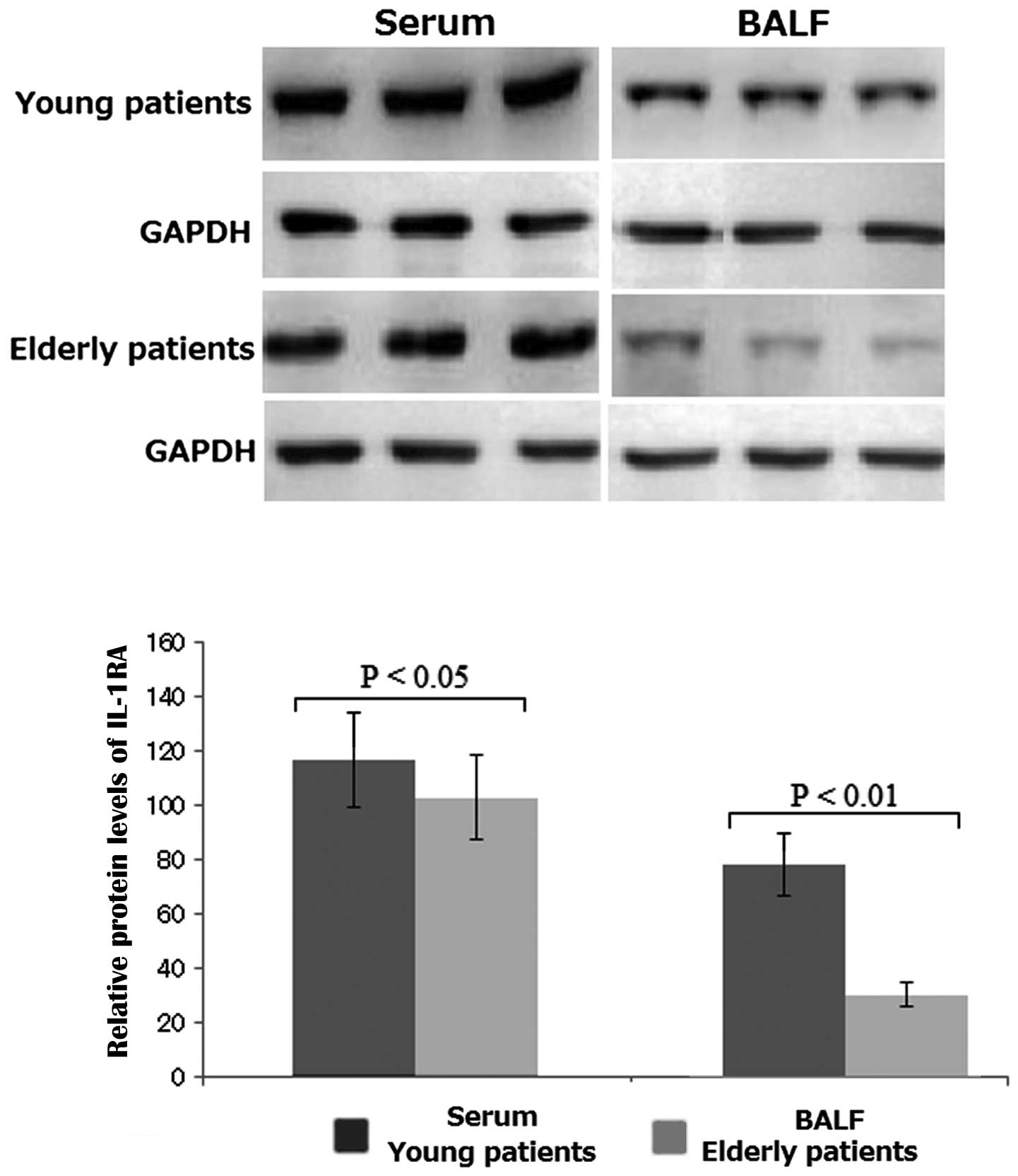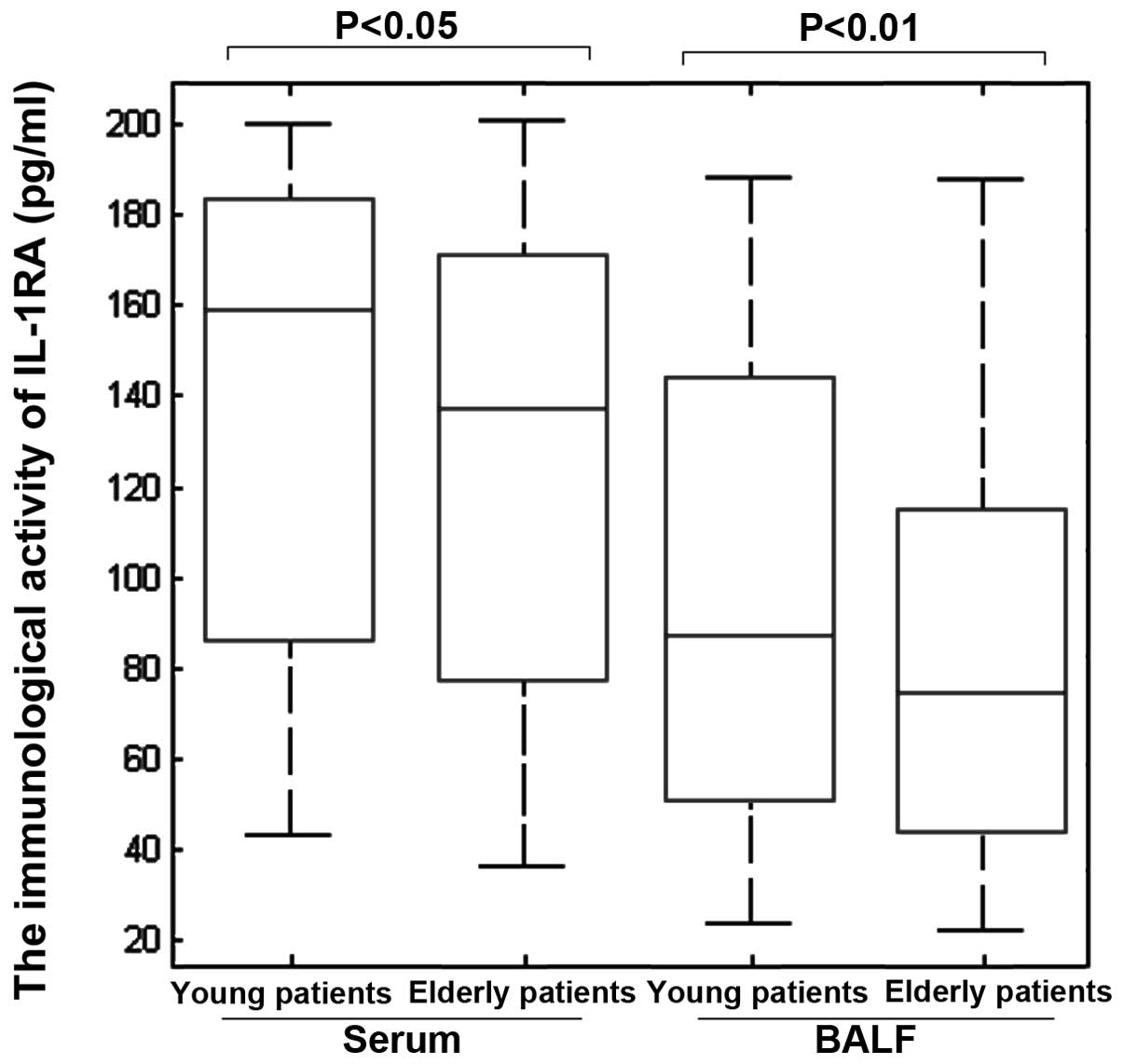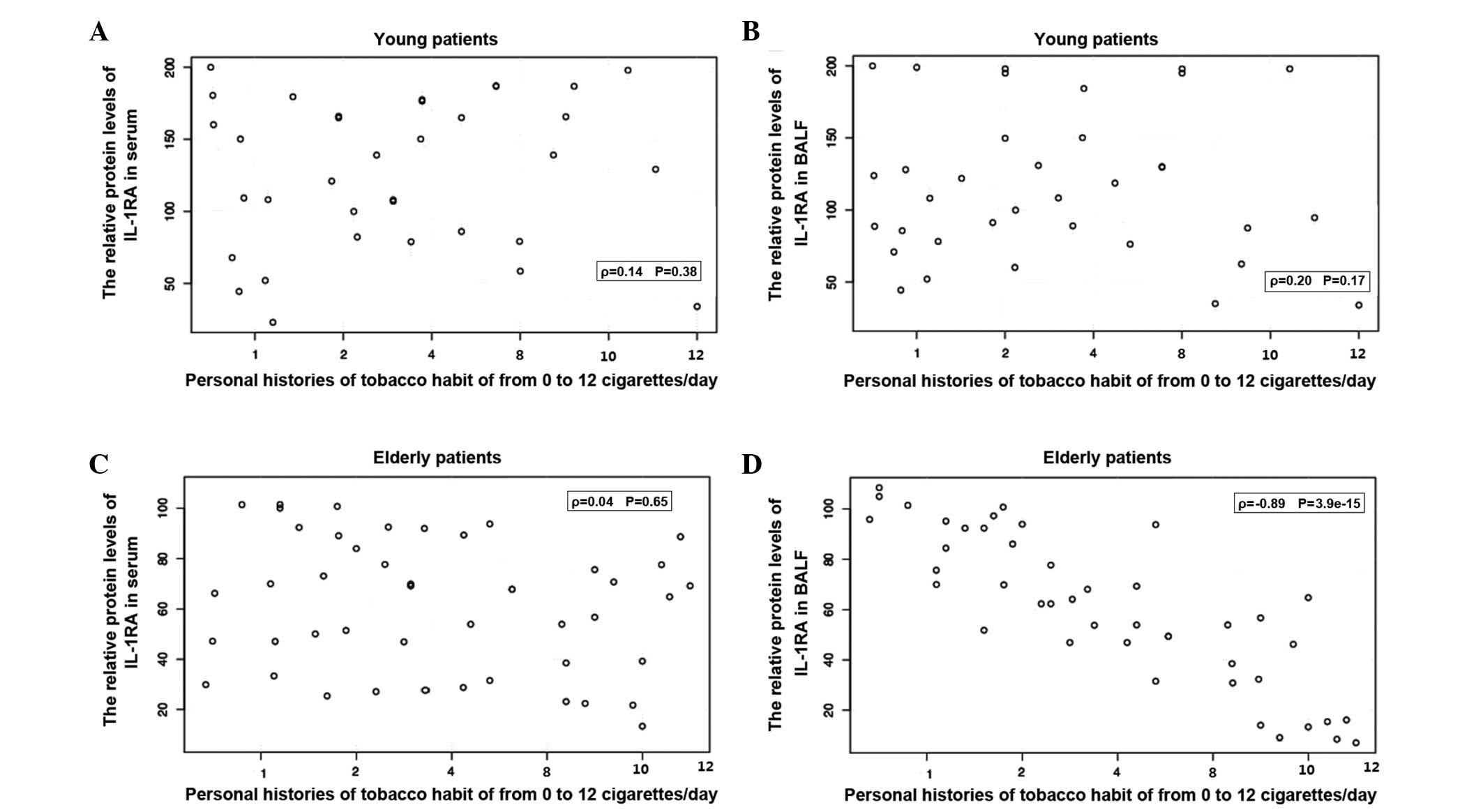|
1
|
Wilson BZ, Anzueto A, Restrepo MI, Pugh MJ
and Mortensen EM: Comparison of two guideline-concordant
antimicrobial combinations in elderly patients hospitalized with
severe community-acquired pneumonia. Crit Care Med. 40:2310–2314.
2012. View Article : Google Scholar
|
|
2
|
Cabre M: Pneumonia in the elderly. Curr
Opin Pulm Med. 15:223–229. 2009. View Article : Google Scholar : PubMed/NCBI
|
|
3
|
Esayag Y, Nikitin I, Bar-Ziv J, et al:
Diagnostic value of chest radiographs in bedridden patients
suspected of having pneumonia. Am J Med. 123:88.e1–88.e5. 2010.
View Article : Google Scholar : PubMed/NCBI
|
|
4
|
Murdoch DR: Nucleic acid amplification
tests for the diagnosis of pneumonia. Clin Infect Dis.
36:1162–1170. 2003. View
Article : Google Scholar : PubMed/NCBI
|
|
5
|
Christ-Crain M and Opal SM: Clinical
review: the role of biomarkers in the diagnosis and management of
community-acquired pneumonia. Crit Care. 14:2032010. View Article : Google Scholar : PubMed/NCBI
|
|
6
|
Hinojosa E, Boyd AR and Orihuela CJ:
Age-associated inflammation and toll-like receptor dysfunction
prime the lungs for pneumococcal pneumonia. J Infect Dis.
200:546–554. 2009. View
Article : Google Scholar : PubMed/NCBI
|
|
7
|
Berezin V and Bock E: Antagonists of the
interleukin-1 receptor. WO Patent App. PCT/DK2012/000,022. Filed
March 14, 2012; issued September 20, 2012.
|
|
8
|
Mani D, Guinee DG Jr and Aboulafia DM:
Vanishing lung syndrome and HIV infection: an uncommon yet
potentially fatal sequela of cigarette smoking. J Int Assoc
Physicians AIDS Care (Chic). 11:230–233. 2012. View Article : Google Scholar : PubMed/NCBI
|
|
9
|
Clifford GM, Lise M, Franceschi S, et al:
Swiss HIV Cohort Study: Lung cancer in the Swiss HIV Cohort Study:
role of smoking, immunodeficiency and pulmonary infection. Br J
Cancer. 106:447–452. 2012. View Article : Google Scholar : PubMed/NCBI
|
|
10
|
Kikuchi R, Watabe N, Konno T, Mishina N,
Sekizawa K and Sasaki H: High incidence of silent aspiration in
elderly patients with community-acquired pneumonia. Am J Respir
Crit Care Med. 150:251–253. 1994. View Article : Google Scholar : PubMed/NCBI
|
|
11
|
Okamoto M, Hoshino T, Kitasato Y, et al:
Periostin, a matrix protein, is a novel biomarker for idiopathic
interstitial pneumonias. Eur Respir J. 37:1119–1127. 2011.
View Article : Google Scholar : PubMed/NCBI
|
|
12
|
Dolinay T, Kim YS, Howrylak J, et al:
Inflammasome-regulated cytokines are critical mediators of acute
lung injury. Am J Respir Crit Care Med. 185:1225–1234. 2012.
View Article : Google Scholar : PubMed/NCBI
|
|
13
|
Sisson TH, Mendez M, Choi K, et al:
Targeted injury of type II alveolar epithelial cells induces
pulmonary fibrosis. Am J Respir Crit Care Med. 181:254–263. 2010.
View Article : Google Scholar : PubMed/NCBI
|
|
14
|
Grommes J and Soehnlein O: Contribution of
neutrophils to acute lung injury. Mol Med. 17:293–307. 2011.
View Article : Google Scholar : PubMed/NCBI
|
|
15
|
Cecere LM, Williams EC, Sun H, et al:
Smoking cessation and the risk of hospitalization for pneumonia.
Respir Med. 106:1055–1062. 2012. View Article : Google Scholar : PubMed/NCBI
|
|
16
|
Katzenstein AL: Smoking-related
interstitial fibrosis (SRIF), pathogenesis and treatment of usual
interstitial pneumonia (UIP), and transbronchial biopsy in UIP. Mod
Pathol. 25(Suppl 1): S68–S78. 2012. View Article : Google Scholar
|
|
17
|
Jeong YJ, Lee KS, Chung MP, Han J, Johkoh
T and Ichikado K: Chronic hypersensitivity pneumonitis and
pulmonary sarcoidosis: differentiation from usual interstitial
pneumonia using high-resolution computed tomography. Semin
Ultrasound CT MR. 35:47–58. 2014. View Article : Google Scholar
|
|
18
|
Lynch DA and Huckleberry JM: Usual
interstitial pneumonia: typical and atypical high-resolution
computed tomography features. Semin Ultrasound CT MR. 35:12–23.
2014. View Article : Google Scholar : PubMed/NCBI
|
|
19
|
Eisman Hidalgo M, Nuñez-Delgado Y and
García Espona MÁ: Idiopathic lipoid pneumonia findings in chest
high resolution computed tomography. A case report. Arch
Bronconeumol. 50:83–84. 2014.(In English and Spanish).
|
|
20
|
Hsu MJ, Lu YC, Hsu YC, Liu WS and Wu WT:
Interleukin-1 receptor antagonist gene polymorphism in patients
with multidrug-resistant Acinetobacter baumannii-associated
pneumonia. Ann Thorac Med. 7:74–77. 2012. View Article : Google Scholar : PubMed/NCBI
|
|
21
|
Patwari PP, O‘Cain P, Goodman DM, et al:
Interleukin-1 receptor antagonist intron 2 variable number of
tandem repeats polymorphism and respiratory failure in children
with community-acquired pneumonia. Pediatr Crit Care Med.
9:553–559. 2008. View Article : Google Scholar
|
|
22
|
Miki C, Inoue Y, Toiyama Y, et al:
Deficiency in systemic interleukin-1 receptor antagonist production
as an operative risk factor in malnourished elderly patients with
colorectal carcinoma. Crit Care Med. 33:177–180. 2005. View Article : Google Scholar : PubMed/NCBI
|
|
23
|
Boström L, Linder LE and Bergström J:
Smoking and GCF levels of IL-1beta and IL-1ra in periodontal
disease. J Clin Periodontol. 27:250–255. 2000.PubMed/NCBI
|


















